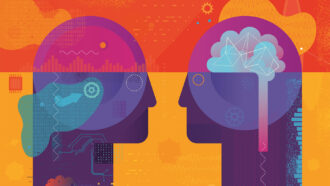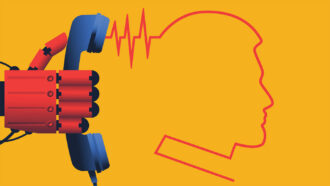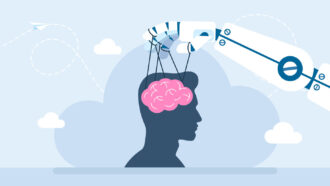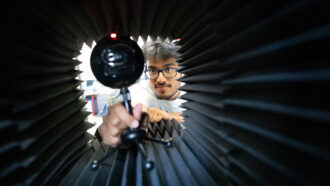Artificial Intelligence
-
 Artificial Intelligence
Artificial IntelligenceHere’s why AI like ChatGPT probably won’t reach humanlike understanding
Unlike people, this type of artificial intelligence isn’t good at learning concepts that it can apply to new situations.
-
 Artificial Intelligence
Artificial IntelligenceHow to design artificial intelligence that acts nice — and only nice
Today’s bots can’t turn against us, but they can cause harm. “AI safety” aims to train this tech so it will always be honest, harmless and helpful.
-
 Artificial Intelligence
Artificial Intelligence‘Jailbreaks’ bring out the evil side of chatbots
Researchers break chatbots in order to fix them. This so-called red-teaming is an important way to improve AI’s behavior.
-
 Artificial Intelligence
Artificial IntelligenceA new tool could guard against deepfake voice scams
Scammers can use AI to create deepfake mimics of people’s voices. AntiFake could make that type of trick much harder to pull off.
-
 Artificial Intelligence
Artificial IntelligenceAI learned how to influence humans by watching a video game
New research used the game Overcooked to show how AI can learn to collaborate with — or manipulate — us.
-
 Tech
TechArtificial intelligence helped design a new type of battery
Supercomputing and AI cut the early discovery steps from decades to just 80 hours. The process led to a new solid electrolyte.
-
 Artificial Intelligence
Artificial IntelligenceTo ‘green’ AI, scientists are making it less resource-hungry
Energy demands of ChatGPT and similar AI tools can threaten Earth’s climate. So researchers have begun redesigning how to run data centers and build AI.
-
 Tech
TechTalking through a tube can trick AI into mistaking one voice for another
Researchers crafted tubes that can trick AI into mistaking one person’s voice for another’s. Bad guys could use such tricks to hack into accounts.
-
 Tech
TechAI can now turn blurry thermal vision into crisp images
Even when it’s pitch black, the new imaging system can create clear images while also accurately gauging distances to objects.
-
 Tech
TechNew glasses can ‘hear’ what you lip sync — and tell your phone
The lip-reading device enables voice commands without the voice. The glasses determine what their wearer is saying by tracking facial movements.
-
 Computing
ComputingSleep helps AI models learn new things without forgetting old ones
Breaks in training meant to mimic human sleep helped artificial intelligence learn multiple tasks.